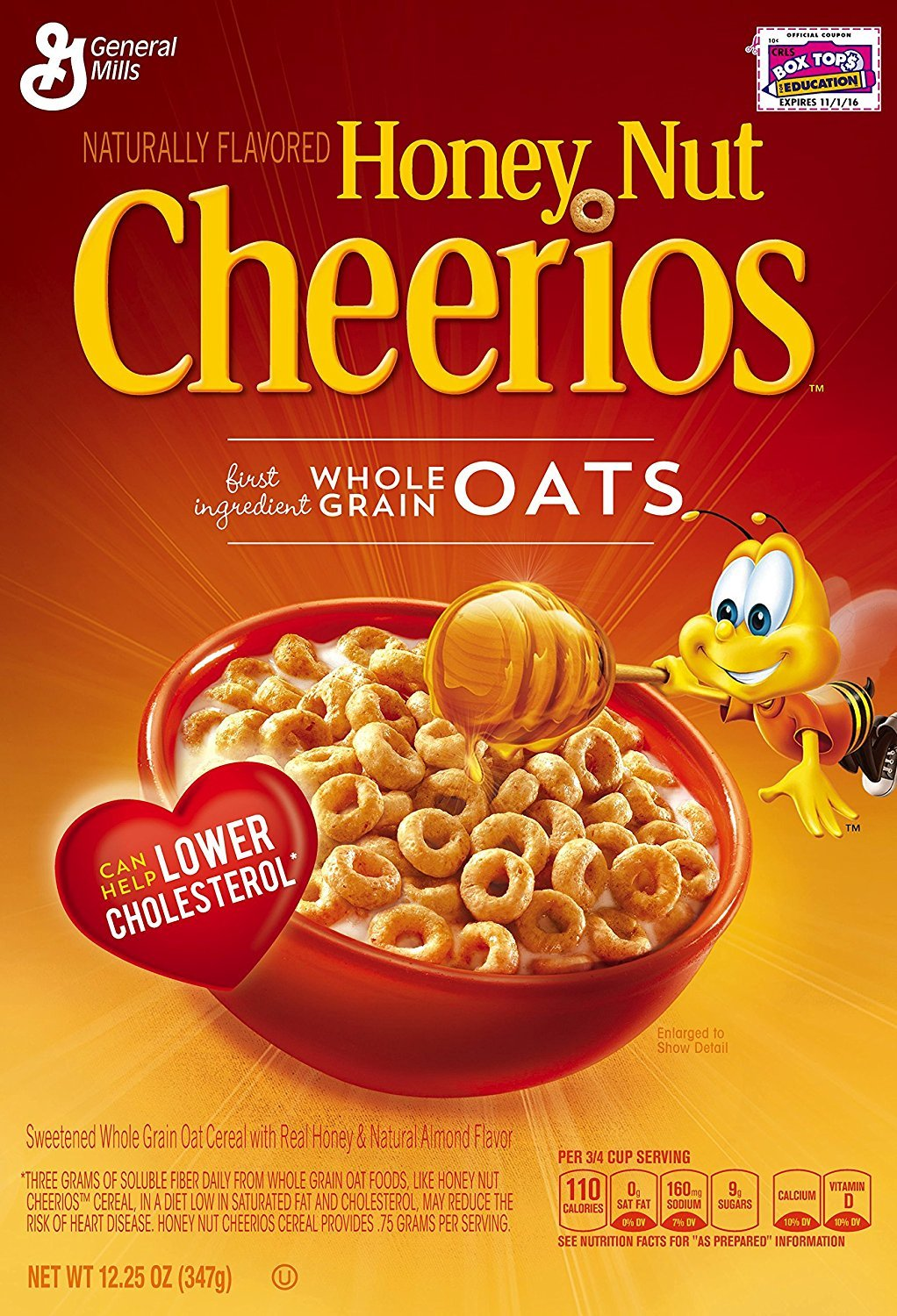I think something people don’t understand about these companies- both processed food and fast food companies- is that they hire a huge number of scientists, from people who design custom artificial flavors and odors to psychologists who understand how to best design packaging to appeal to certain demographics.
They are using their understanding of human psychology and human sensory input to make these products appeal to us as much as they ever possibly could.
And both that understanding and the technology itself keeps improving.
So this will only get worse.
Just remember that every time you see anything advertised to you from a major food company or restaurant chain that they are using your brain against you and doing it well. And it will still work. It works with me despite knowing it.
It works with me despite knowing it.
Well, a big mac once every couple months won’t kill you. I enjoy it once in a while (especially after midnight) but eat well the rest of the time. The dosage makes the poison, as the saying goes.
The problem is that for many people it’s one Big Mac this week and one Burrito Supreme the next week and Oreos and Doritos in between and Lattes from Starbucks and endless sugary sodas and so many other things people eat in the Western world.
Yeah, but that’s not really the company’s fault is it? It’s the person’s choice of what they put in their mouths
As I said, it is the company’s fault because they are using science and technology to use your brain against you. You’re blaming the scammed for falling for the scam when there wouldn’t be a scam to fall for in the first place if they weren’t running that scam. It’s not the victim’s fault.
This is the victim-blaming lie that got us to where we are in the first place.
not really the company’s fault is it? It’s the person’s choice of what they put in their mouths
a lot of these garbage foods full of chemicals and devoid of quality are specifically marketed as “healthy.” that is 100% on the corporations lying to the world. pick up a package of protein bars with words like “smart,” or “perfect” in the name of the product, and look at the ingredients–it’s literally a candy bar, disguised as something “healthy”
yes, everyone ultimately decides what they eat, but are you really going to blame the people being lied to instead of the ones doing the lying?
Yep, one of the many, many psychological tools in their toolbox- convincing you it’s good for you.

Honey Nut Cheerios has 9 grams of sugar per serving. A serving is, as usual, far less Cheerios than anyone would likely eat- 3/4 of a cup.
There’s nothing good for you about it. The number one ingredient is oats because if the number two ingredient, sugar, was the number one ingredient, it wouldn’t taste like Cheerios.
Also note the word “can” in “can help lower cholesterol.” That “can” is doing a lot of heavy lifting.
if the number two ingredient, sugar,
another trick they all use is to divide the sugar up into several different kinds of sugar, eg. clif bars have brown rice syrup, tpioca syrup, cane syrup, organic cane sugar, cane sugar. because each of these comprise a smaller percentage of the total, they can be lower in the ingredient list. but you’re still getting 16g added sugar in a 68 gram “healthy” protein bar
Define “healthy”, though. People eat them because they pack energy into a bar that’s easily thrown in a bag. I’ve never heard of someone eating them and expecting to turn thin and pretty.
You realise chemicals is just a scary science word that doesn’t need to mean anything bad? You can make your point without making it sound like some scientist is deliberately trying to poison you. Water is a chemical for fuck’s sake.
The notion of “choice,” and “free will” has largely been called into doubt by scientists.
Second, when (as the above-user mentioned) a corporate conglomerate has millions if not billions of dollars to spend on marketing teams, behavioral scientists, psychologists, etc., that tends to overwhelm our finite willpower and short-circuits our primal neural motivators.
Ultra-Processed Foods have tastes and caloric densities in abundance that simply is not found in the wild so easily except for honey guarded by angry bees and salt licks… What do you think that does to the brain whose evolutionary past is still firmly rooted in hunting-and-gathering?
You people are funny. I don’t give af about the downvotes, so press that button all you want, lol.
But. The “tricking us into eating stuff” isn’t true for everyone. Only the weak willed.
If it was a 100% effective strategy, we’d all be overweight.
I know you believe yourself to be a free willed person who cannot be influenced subconsciously via marketing. You’ve arrived at that position because marketing and propaganda have targeted you to make you believe as such. It is extremely effective. You are human, you are just as susceptible to marketing and propaganda as the rest of us.
Of course I am.
I never said I don’t fall for it, I said I know my limits of over consumption.
The sad thing is, the food isn’t even that good.
By far the most appealing food is the stuff I make for myself, after learning exactly how to make something to meet my own preferences.
These foods might awaken all kinds of cravings, but walking into the local grocer, nothing in there that’s ready to eat, will actually leave me satisfied afterwards.
Food is literally just getting worse, even as it’s designed to entice us into eating more than ever
Nestlé, PepsiCo, Mars, and Kraft Heinz
These are some serious, evil, greedy motherfuckers that will never allow UPFs to be regulated in the U.S. It’s vitally important that people take personal responsibility to learn about the dangers of UPFs and eliminate them from their diet.
Personal responsability can only work if people are able to both educate and control themselves, which these companies are actively working against though psychological manipulation and by making their foods as addictive as possible.
The real solution is to remove corruption from the government by removing control from the people who are corrupting the government.
For a few years now I’ve thought that the food industry will feature as the next controversy as tobacco has been. Years ago I read an article about High Fructose Corn Syrup, its history and its negative effect on the liver. I can’t find the original but this one comes close. Ever since I’ve avoided HFCS.
We then have hydrogenated fats that are considered bad for the body.
The bottom line is that these ingredients are produced to make food production cheaper but at the expense of a healthy diet. Industry sector lobbying helps these ingredients to the market.
Yes this so much. I read this years back but didn’t know alot about it
I’m still a skeptic of the Nova system into the 4 categories (1: unprocessed or minimally processed, 2: processed ingredients, 3: processed foods, 4: ultra processed foods), because it’s simultaneously an oversimplification and a complication. It’s an oversimplification because the idea of processing itself is such a broad category of things one can do to food, that it isn’t itself all that informative, and it’s a complication in that experts struggle to classify certain foods as actual prepared dishes being eaten (homemade or otherwise).
So the line drawing between regular processed food and ultraprocessed is a bit counterintuitive, and a bit inconsistent between studies. Guided by the definitions, experts struggle to place unsweetened yogurt into Nova 1 (minimally processed), 2 (processed culinary ingredients), 3 (processed food) or 4 (ultra processed food). As it turns out, experts aren’t very consistent in classifying the foods, which introduces inconsistency in the studies that are performed investigating the differences. Bread, cheese, and pickles in particular are a challenge.
And if the whole premise is that practical nutrition is more than just a list of ingredients, then you have to handle the fact that merely mixing ingredients in your own kitchen might make for a food that’s more than a sum of its parts. Adding salt and oil catapults pretty much any dish to category 3, so does that mean my salad becomes a processed food when I season it? Doesn’t that still make it different than French fries (category 3 if I make them myself, probably, unless you count refined oil as category 4 ultra processed, at which point my salad should probably be ultra processed too)? At that point, how useful is the category?
So even someone like me, who does believe that nutrition is so much more than linear relationships between ingredients and nutrients, and is wary of global food conglomerates, isn’t ready to run into the arms of the Nova system. I see that as a fundamentally flawed solution to what I agree is a problem.
The more I read about how they classify food, the more I see it as a shitty classification system. It almost reminds me of the DSM.
This is the best summary I could come up with:
When the Brazilian nutritional scientist Carlos Monteiro coined the term “ultra-processed foods” 15 years ago, he established what he calls a “new paradigm” for assessing the impact of diet on health.
Studies of UPFs show that these processes create food—from snack bars to breakfast cereals to ready meals—that encourages overeating but may leave the eater undernourished.
Hall found that the subjects who ate the ultra-processed diet consumed around 500 more calories per day, more fat and carbohydrates, less protein—and gained weight.
In part it has used the same lobbying playbook as its fight against labeling and taxation of “junk food” high in calories: big spending to influence policymakers.
In an echo of tactics employed by cigarette companies, the food industry has also attempted to stave off regulation by casting doubt on the research of scientists like Monteiro.
“There’s scientific agreement on the science,” says Jean Adams, professor of dietary public health at the MRC Epidemiology Unit at the University of Cambridge.
The original article contains 581 words, the summary contains 161 words. Saved 72%. I’m a bot and I’m open source!
Just don’t replace this with paleo diet bullshit.








